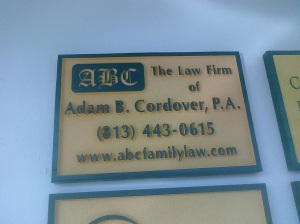All Alimony Awards are Not the Same
Section 61.08, Florida Statutes, and relevant case law, provides for several different types of alimony awards. The likelihood of receiving each type of award depends on several different factors, including the need of one spouse for support, the ability of the other spouse to pay for that support, and the length of the marriage. Below is a brief description of available types of alimony:
- Permanent Periodic Alimony– This type of alimony is regularly ordered for long-term marriages, defined as lasting for 17 years or more. However, it may be awarded in (i) medium-term marriages (7-16 years) depending on certain factors such as the contribution of each party during the marriage and the standard of living during the marriage or (ii) short-term marriages (up to 6 years) if there are exceptional circumstances, such as a spouse contracting a debilitating disease. As the name suggests, this award lasts for an indefinite amount of time and is paid on a regular basis. However, it may later be modified or terminated by court order if there is a substantial change in circumstances.



